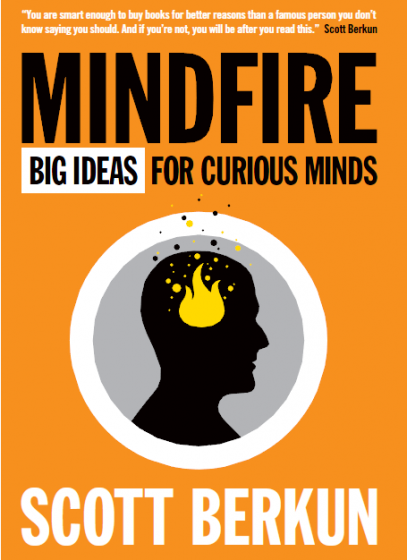
We are information insecure
Like American tourists in Europe racing from site to site with barely a moment to take a picture or talk to someone not on our tour bus, we’re trapped in a quantity mentality, despite our quality-based desires.
We are information insecure. The compulsion for more is driven by lack of confidence in what we already have. Out of a secret kind of fear, we are convinced that the next e-mail or link is better than the one we’re reading now. The result is a private rat race: what does it mean to stay on top of information that doesn’t satisfy?
We have a checklist mentality in parts of our life that are meant for fully experiencing. Perhaps we are overwhelmed by the amount of beauty and comedy to see, and we don’t want to miss a second of it. The desire has good intentions. It shows that we value ourselves getting the best of life. Yet, this compulsion is exactly why we miss most experiences. There’s something here about a fear that good experiences are scarce, and that some experiences are fundamentally better than others — and we MUST find those. We’re obsessed with having and collecting. To me, it’s similar to dating while having an eye on all the passersby — the current relationship or moment is consistently neglected. To generalise, it’s those who have lost something dear to them who really savour the moment — perhaps because they realise that we never really “have” any thing or person.
Mindfire: Big Ideas for Curious Minds by Scott Berkun
—-
People don’t listen. It’s rare for people to genuinely try to understand what others are trying to say. instead they’re waiting for their own chance to speak.
And the fact that people aren’t listening makes the person speaking feel like they’re not being heard, compelling them to talk louder. But talking louder mostly makes people want to listen less, so the negative feedback loop ensures, leading to anger, rage, and rash acts, all motivated by the absence of acknowledgement, not the facts being argued.
Scott parses the world to make sense of it. These ideas become frameworks that we can experiment when trying to understand our own interactions.
I also notice that what I’m taking away are often concepts that I agree with — this is a note to self to read more well-written but opposing thoughts.
There are two kinds of people: people who make things complex and people who simplify.
Simplifiers next let their ego get in the way of the short path. When you give them seemingly complicated tasks, they simplify, consolidate, and reinterpret instinctively, naturally seeking the simplest way to achieve what needs to be done. They find ways to communicate complex ideas in simple terms without losing their essence or power.
This quote is particularly triggering for me as I used to take pride in making things complex, and I still see the beauty in it. But it is far easier to be complex than to be simple.
Mindfire: Big Ideas for Curious Minds by Scott Berkun